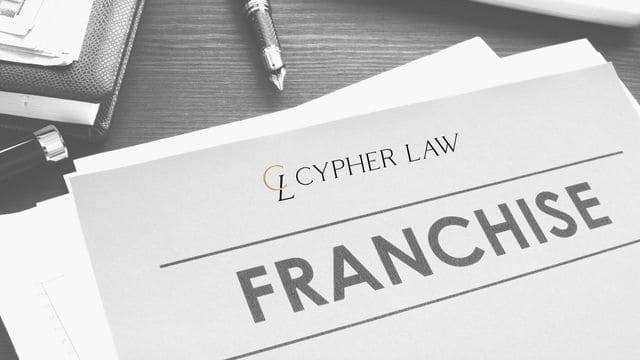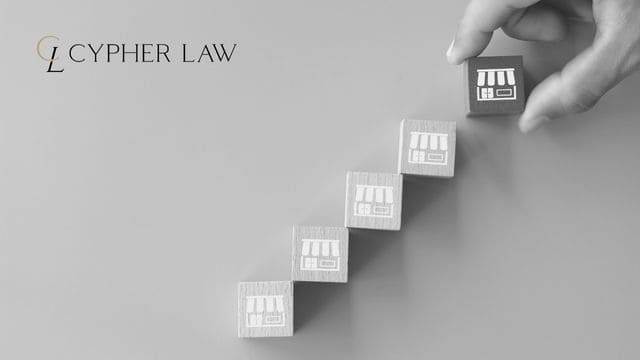Here’s How to Become a Franchisor in Canada 2022
Table of Contents
With so much opportunity, you may wonder How to Become a Franchisor in Canada and get in on the action yourself.
In Canada, the franchising industry is worth an estimated $51 billion. With over 780,000 people employed in franchised businesses, it’s no wonder that this business model is so popular. Here’s everything you need to know about becoming a franchisor in Canada in 2022.
Phone: 289-816-CYPR (2977)
Fax: 289-312-CYPR (2977)
Office: 755 Queensway East, Suite 202, Mississauga, ON
What is Franchising?

Franchising is a business model in which businesses, known as franchisees, operate under the terms of a contract with a franchisor. The franchisor provides the franchisee with a business model, including branding, procedures, and support, in exchange for a percentage of the franchisee’s revenues.
Franchising is a popular way to expand a business.
It allows companies to tap into new markets without incurring the costs and risks associated with opening recent locations. Franchising also allows entrepreneurs to start their interactions with the support of an established brand.
Many people question, How to Become a Franchisor in Canada, it’s more common then we think.
There are several things to consider when it comes time to learn Many people question, How to Become a Franchisor in Canada.
So, before becoming a franchisor:
- You must have a successful business model that can be replicated.
- You need the resources to support franchisees, including marketing and training materials.
- You must be prepared to handle complaints and disputes from franchisees.
- You must consult a lawyer to ensure your franchising agreement protects your interests.
The Different Types of Franchises

Let’s continue on “How to Become a Franchisor in Canada“.
A franchise is a business model that can be adopted by almost any type of business. The critical components of a franchise are that it is a licensed business relationship in which the franchisor grants the franchisee the right to use their trademark, trade name, and operating system. The franchisee pays the franchisor an initial fee and ongoing royalties. In return, the franchisor provides the franchisee with support in areas such as marketing, operations, and training.
There are several different franchises, each with its benefits and drawbacks. The most common franchises are product/trade name franchises and business format franchises.
Product/trade name franchises involve licensing a product or trade name to the franchisee. The franchisor typically manufactures or distributes the product and provides support to help the franchisee sell it. Product/trade name franchises can be successful if there is strong consumer demand for the product. Some examples of product/trade name franchises include Coca-Cola, McDonald’s, and Nike.
Business format franchises are similar to product/trade name franchises but also license a proven business model to the franchisee. Business format franchises tend to be more successful than product/trade name franchises because they offer a complete package that includes everything needed to run a successful business.
In addition to manufacturing or distributing products, franchisors also provide support in areas such as marketing, accounting, and human resources.
Although you might bieleve that learning How to Become a Franchisor in Canada may seem difficult, the process can be smoother with a Legal Professional who can help guide you every step of the way.
Pros and Cons of Franchising

There are many different factors to consider when learning How to Become a Franchisor in Canada. Or even just the consideration of franchising your own business.
The pros and cons of franchising can vary depending on the type of business, the size of the company, and the business owner’s goals.
Some of the pros of franchising include the following:
- – You can expand your business quickly and efficiently without opening new locations.
– Franchises are turnkey, so you don’t have to worry about the start-up costs and headaches associated with opening a new business from scratch.
– As a franchisor, you will have more control over how your brand is represented and marketed than if you were to license your brand to someone else.
– Franchises tend to be more successful than independent businesses, so you can feel confident that you’re investing in a proven model.
Some of the cons of franchising include the following:
- – You will need to provide extensive training and support to your franchisees.
– You will have less control over how your franchisees operate their businesses than if you run the business yourself.
– It can be expensive to start as a franchisor, particularly if you’re buying an existing franchise system.
– You may need help finding qualified franchisees willing and able to meet your standards.
How to Start a Franchise in Canada

If you’re learning How to Become a Franchisor in Canada, there are a few things you need to do.
First, you’ll need to decide what business you want to franchise. There are many different types of companies that can be franchised, so it’s essential to choose one that you’re familiar with and think has growth potential.
Once you’ve chosen your business, you’ll need to create a business plan. This plan should include an overview of your business, marketing strategy, financial projections, and franchise agreement.
Your franchise agreement is a legally binding contract between you and your franchisor, so it’s essential to have an experienced lawyer review it before you sign anything. At Cypher Law we specialize in extensive Franchising Agreements and more.
We, at Cypher Law, want to ensure that you and your franchised business are protected!
We will assist you with all aspects of:
- Review of Franchise Disclosure Document
- Review of Franchise Agreements
- Review of Franchised location Lease and any ancillary documents
- Liaise with the Franchisor
After completing your business plan, the next step is finding a franchisor. There are many different ways to find a franchisor, but the most common method is through online directories or by attending franchise trade shows. Once you’ve found a franchisor, you’re interested in working with, the next step is to contact them and set up an initial meeting.
At this meeting, you’ll discuss your business plan and ensure that both parties are on the same page. If everything goes well, the franchisor will provide you with a Franchise Disclosure Document (FDD), which outlines all of the terms and conditions of the franchise agreement once you’ve reviewed and signed the FDD. Congratulations!
Keep on reading to learn more on How to Become a Franchisor in Canada.
What are the Requirements for Becoming a Franchisor in Canada?
Learning How to Become a Franchisor in Canada can be complex for some, remember that a few requirements must be met.
First and foremost, the franchisor must have a proven business model that others can replicate. The franchisor must also have the necessary resources to support franchisees, including marketing and training materials and a dedicated support team.
Additionally, the franchisor must be prepared to make a substantial financial investment in the franchise system.
Lastly, the franchisor must be registered with the Canadian Franchise Association (CFA). The CFA is the recognized authority on franchises in Canada and provides potential franchisees with important information about franchising opportunities.
Don’t hesitate to contact the CFA today to learn more about becoming a franchisor in Canada.
You can also Contact Us at Cypher Law to learn more on How to Become a Franchisor in Canada.
What are the Steps for Becoming a Franchisor in Canada?
1. The first step on How to Become a Franchisor in Canada is to develop your business concept and model. This includes creating a detailed business plan and deciding on the structure of your franchise system.
2. Once you have developed your business concept and understood How to Become a Franchisor in Canada, you must register your franchise with the Canadian Franchise Association (CFA). You must provide the CFA with a copy of your franchise disclosure document (FDD).
3. After registering your franchise with the CFA, you will need to find potential franchisees. This can be done through marketing efforts or by attending franchising events.
4. Once you have found potential franchisees, you will need to provide them with a copy of your FDD and answer any questions they may have. If you find understanding the business model of How to Become a Franchisor in Canada complex. Make sure to have a legal professional by your side. If you are new to franchising, or even experienced make sure you have a lawyer review these essential documents!
Conclusion
The process is straightforward on How to Become a Franchisor in Canada.
First, you’ll need to develop your business model and ensure it complies with Canadian law.
Once you’ve done that, you’ll need to find Franchise Disclosure Documents from potential franchisors and submit them to the Canadian Franchise Association for review.
After that, it’s just a matter of finding a good location and getting started!
Always consult a Legal Professional when looking into How to Become a Franchisor in Canada! It’s always best to stay safe.
Thanks for reading our Article on “How to Become a Franchisor in Canada“.
Phone: 289-816-CYPR (2977)
Fax: 289-312-CYPR (2977)
Office: 755 Queensway East, Suite 202, Mississauga, ON

Leave a Reply